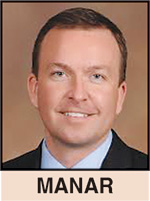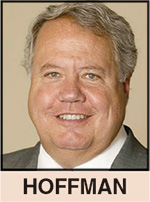By CARL GREEN
Illinois Correspondent
 Springfield, IL – Governor J.B. Pritzker’s state budget depends in part on new revenue expected to result from his proposed progressive plan to replace the state’s flat tax with a progressive income tax that would, in effect, make the rich pay their fair share.
Springfield, IL – Governor J.B. Pritzker’s state budget depends in part on new revenue expected to result from his proposed progressive plan to replace the state’s flat tax with a progressive income tax that would, in effect, make the rich pay their fair share.
That’s important because Pritzker’s budget faces the same problems Illinois has had for years – high expenses, enormous pension liabilities and a limited amount of tax money to pay for it all.
Pritzker’s budget, laid out last month, does not try to solve all of the problems at once, but does make some moves in the right direction. In addition to a progressive income tax, Pritzker’s proposed budget including an estimated $1.1 billion in new revenue:
• $200 million a year from selling sports betting licenses at $10 million each.
• $170 million a year from selling marijuana business licenses at $100,000 each.
• $55 million from raising cigarette taxes from $1.98 to $2.30 a pack.
• $10 million from taxing e-cigarettes at 36.5 percent, the same as for other tobacco products.
• $20 million a year from a 5-cent tax on plastic grocery bags.
• $175 million from a delinquent tax payment incentive program.
• $390 million a year for Medicaid from a tax on managed care organizations.
PHASE OUT PRIVATE SCHOOL SCHOLARSHIP TAX BREAKS
Pritzker also wants to phase out the state’s private school scholarship program and putting more money into public schools.
Pritzker proposes reducing the current $100 million cap on donations to the Invest in Kids private school scholarship program to $50 million, and phasing the program out completely over the next three years, saving the state an estimated $6 million.
BETTER TREATMENT OF WORKERS, TEACHERS
Legislative leaders have given cautious approval to Pritzker’s budget.
 Senator Andy Manar (D-Bunker Hill), chairman of the Appropriations II subcommittee, praised Pritzker’s plan to put more money toward schools and career and technical education, but warned that the governor’s revenue proposals will require a careful hearing in the Senate.
Senator Andy Manar (D-Bunker Hill), chairman of the Appropriations II subcommittee, praised Pritzker’s plan to put more money toward schools and career and technical education, but warned that the governor’s revenue proposals will require a careful hearing in the Senate.
“Investment in education is an investment in the economy and in long-term stability,” Manar said. “I give the governor credit for being aggressive and creative in addressing Illinois’ budget problems. It’s refreshing to have a leader who is not trying to balance the budget on the backs of workers and retired teachers.”
FOCUS ON RESTORING FINANCIAL STABILITY
 Following “four years of budgetary carnage” caused by Gov. Bruce Rauner, that “resulted in billions of dollars in outstanding state-owed obligations,” Rep. Jay Hoffman (D-Swansea) said state lawmakers must focus on restoring financial stability, reducing debt and finding spending cuts.
Following “four years of budgetary carnage” caused by Gov. Bruce Rauner, that “resulted in billions of dollars in outstanding state-owed obligations,” Rep. Jay Hoffman (D-Swansea) said state lawmakers must focus on restoring financial stability, reducing debt and finding spending cuts.
“In the days and weeks ahead, it will be crucial for us to identify areas of excessive spending to reduce the debt burden,” Hoffman said. “We need to prioritize the state’s financial needs above partisanship in order to overcome budgetary shortfalls.”
 Representative Katie Stuart (D-Edwardsville) said while pursuing debt reduction, the state should avoid new tax burdens on the middle class “by asking millionaires and billionaires to pay their fair share and responsibly controlling state spending –– not by increasing taxes on those who are already struggling to make ends meet.”
Representative Katie Stuart (D-Edwardsville) said while pursuing debt reduction, the state should avoid new tax burdens on the middle class “by asking millionaires and billionaires to pay their fair share and responsibly controlling state spending –– not by increasing taxes on those who are already struggling to make ends meet.”

